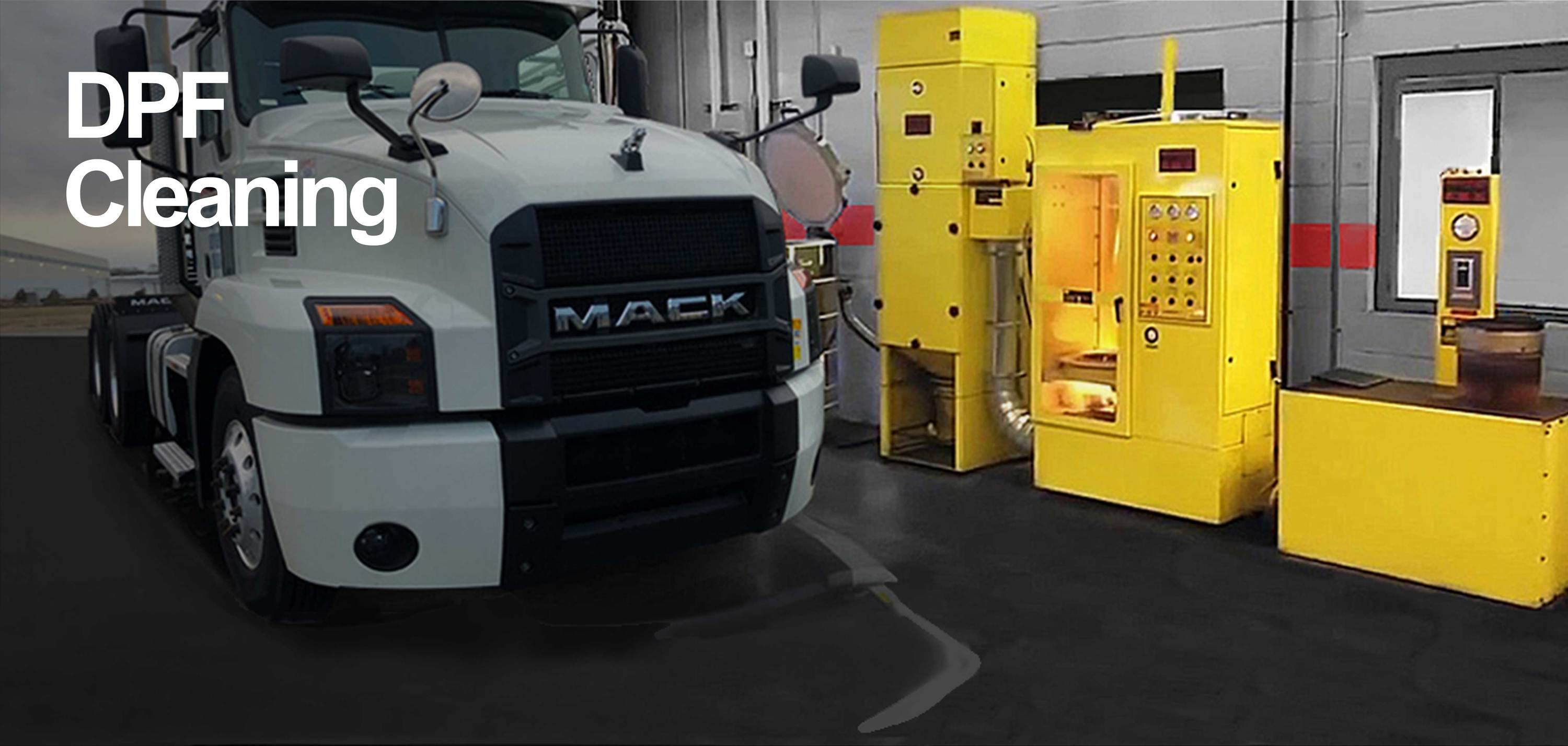
DPF Cleaning for Commercial Trucks
DPF (Diesel Particulate Filter) cleaning is essential for commercial trucks to maintain optimal performance, comply with emissions regulations, and extend the lifespan of the DPF system. Over time, soot and ash accumulate in the DPF, hindering engine performance, increasing fuel consumption, and potentially leading to costly repairs if neglected.
1. DPF Regeneration
Passive Regeneration: Occurs naturally during highway driving when exhaust temperatures are high enough to burn off accumulated soot. Active Regeneration: Initiated by the engine control unit (ECU) when soot levels reach a certain threshold, injecting additional fuel to raise exhaust temperatures and burn off soot. Forced Regeneration: A manually initiated process by a technician using diagnostic tools, necessary when passive and active regeneration fail
to adequately clean the DPF.
2. Professional DPF Cleaning Stages
Stage 1 Pneumatic Cleaning: TrapBlaster pneumatic cleaning machine uses high volume air with the patented bi-directional air scanning to remove soot and ash. About 80% of all DPFs are complete after 30 minutes and ready to be placed back in service.
Stage 2 Thermal Cleaning: TrapBurner thermal regenerator heats the DPF to oxidize any remaining soot and loosen hardened ash after the Stage 1 cleaning. Only necessary when the DPF does not meet the green tag range after Stage 1. This process takes 12 hours. This process completes another 15% of DPFs, bringing the total to 95% to be placed back into service after both Stage 1 & 2.
3. Recommended Cleaning Frequency
Most engine manufacturers recommend DPF cleaning every 120,000 to 200,000 miles or every six to 12 months. However, the optimal cleaning frequency can vary depending on factors like truck usage, driving conditions (e.g., highway vs. city), and engine load. Trucks engaged in a lot of stop-and-go driving or idling may require more frequent cleaning. Early intervention at the first sign of DPF issues (e.g., increased regeneration frequency, decreased engine performance, warning lights) can prevent more severe problems.
4. DPF Cleaning Challenges and Solutions
Heavy-Duty Issues: Severely clogged or damaged DPFs may necessitate replacement, which can be expensive. Maintenance Practices: Adhering to manufacturer guidelines, using high-quality fuel and engine oil, and avoiding excessive idling can help prolong DPF life and reduce the need for frequent cleaning. DPF cleaning is crucial for maintaining the environmental performance and longevity of commercial diesel trucks. Choosing the right cleaning method and adhering to a proper maintenance schedule are essential for optimal results and preventing costly repairs.
The following Gabrielli service departments have on-site DPF cleaning machines.
Commercial Truck DPF Cleaning, New Jersey
Gabrielli DPF Cleaning - Bloomsbury, NJ
Gabrielli DPF Cleaning - Dayton, NJ
Gabrielli DPF Cleaning - Fairview, NJ
Commercial Truck DPF Cleaning, New York
Gabrielli DPF Cleaning - Bronx,NY
Gabrielli DPF Cleaning - Jamaica, NY
Gabrielli DPF Cleaning - Albany, NY
Gabrielli DPF Cleaning - Utica, NY
Gabrielli DPF Cleaning - Medford, NY
Commercial Truck DPF Cleaning, Connecticut
Gabrielli DPF Cleaning - Enfield, CT
Gabrielli DPF Cleaning - Milford, CT
